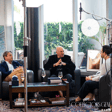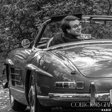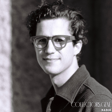
Mario Andretti - Racing Legend & Collector of 111 Wins
Today’s guest is none other than the racing legend Mario Andretti, widely regarded as the greatest race car driver in the history of the sport.
Mario Andretti was born in Italy and didn't emigrate to the United States until age fifteen. At 19, he began racing stock cars in Pennsylvania and that was the start of an illustrious career that saw him compete and win in every discipline he entered. He won races in sports cars, sprint cars and stock cars – on ovals, road courses, drag strips, on dirt and on pavement. He won at virtually every level of racing since he arrived in America from his native Italy.
His achievements became legendary: The world watched as he won the Daytona 500, the Indianapolis 500 and ultimately the Formula One World Championship, taking home an unprecedented trifecta. No other race car driver has ever won all three titles and Mario took the checkered flag 111 times during his career – a career that stretched five decades and across six continents.
Today, in his retirement from racing, Mr. Andretti is still one of the most respected voices in motorsports and has received hundreds of awards and recognitions, like being named Driver of the Century, he was knighted by his native Italy, and the Library of Congress in Washington DC added him to its Living Legends list. And on the lighter side, but undoubtedly affirmation of his charisma and popularity, he was in the first Pixar Cars movie voicing himself and GQ Magazine named him one of "The 25 Coolest Athletes of All Time".
So with great honor, this is Mario Andretti, the greatest race car driver of all time, for Collectors Gene Radio.
Mario Andretti - https://marioandretti.com/



















